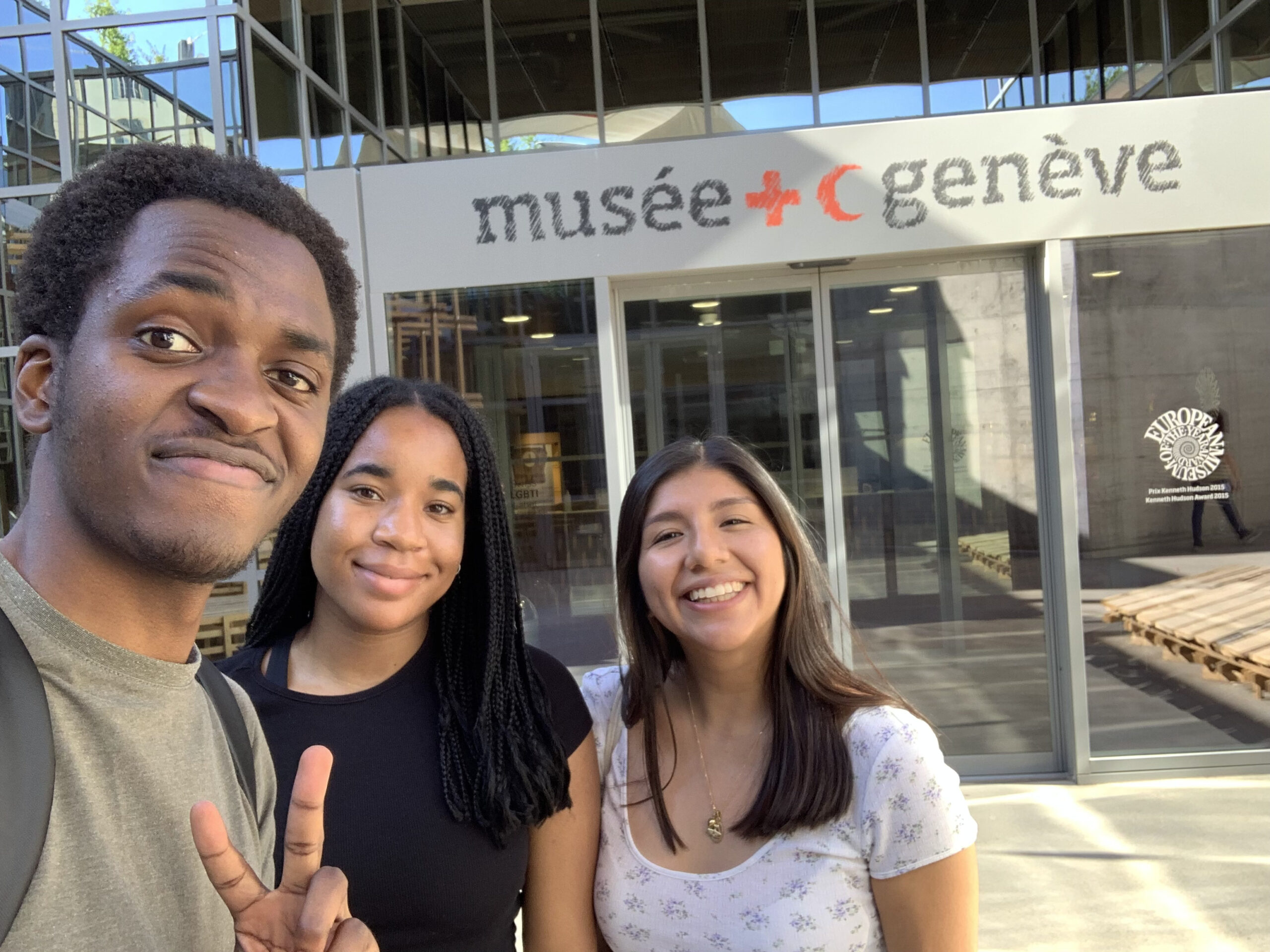My Professional Life at the World Medical Association
By: David Adam Kato, College ’24

David and his co-interns visiting the International Red Cross and Red Crescent Museum.
World Medical Association in Ferney-Voltaire, France
As you are considering applying to the World Medical Association (WMA) GRIP placement, I am sure one of the things you are curious about is what your professional life will look like? Questions like: will this internship push me further in the journey of figuring out my career? Well, here is a peek into how my internship went, and hopefully it will help. As of writing this, and of doing the internship, of course, I am a rising junior in the college majoring in political science. I am also on the PreMed track. I was interested in the bioethics placement for a number of reasons: I was interested in exploring how bioethics and medical ethics look like on a policy level, and I was curious to see the connections that arise between politics and medicine. I think the internship greatly delivered on all of these expectations.
First off, a quick description of the WMA. The World Medical Association is an international organization that represents physicians around the world. Its members are mostly National Medical Associations as well as medical associations from recognized non-sovereign states and a Junior Doctors Network. The constituent members of the WMA have created a number of policies and declarations aimed at ensuring ethical medical practice by physicians, holding medical research to the highest possible standards, and advocating for the rights of patients and physicians in order to create better health outcomes for everyone. This, therefore, necessitates a mechanism of encouraging constituent members to stay within policy guidelines, coordinating collective action of members, creating new policies, and reviewing former policies all, all of which—and more—are part of the WMA secretariat mandate.
During my time at the WMA secretariate my co-interns and I were integrated into the day-to-day activities of the office and got the opportunity to work on a number of assignments from different parts of the secretariat. At the beginning of the internship, we initiated a review protocol and conducted revisions for 15 WMA policies as part of preparatory steps for the 2022 and 2023 General Assemblies of the World Medical Association that bring together the WMA’s 115 National Medical Associations /Constituent Members. We also liaised with experts from Amnesty International, the International Community of the Red Cross, the International Rehabilitation Council for Torture Victims, and others to develop informed and updated commentary on WMA policies. Additionally, we drafted two reports that investigated the role of physicians in the ill-treatment of prisoners of conscience as well as political prisoners or dissidents that aided the Secretariat’s mandate for advocating for ethical medical practice around the world. It is important to mention that there were also days when we had low-priority assignments, helped out with simple tasks around the office, or even had days off. So, we weren’t going at 100% all the time. The professional life at the WMA was an immersive experience, and I believe has brought clarity to my career path and academic journey moving forward. It was a great opportunity for me to test my passion for medicine as a political science student, and even though this was mainly a policy perspective, it was still meaningful nonetheless. Last but not least, I loved the way the secretariat valued our competence and did not withhold including us in important assignments. Overall, a very immersive summer experience.
The Global Research and Internship Program (GRIP) provides outstanding undergraduate and graduate students the opportunity to intern or conduct research abroad for 8 to 12 weeks over the summer. Participants gain career-enhancing experience and global exposure that is essential in a global workforce.